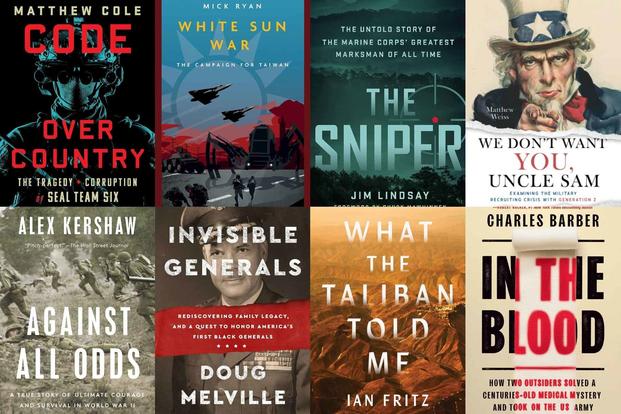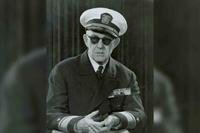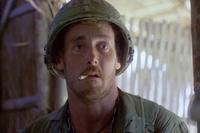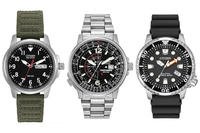As an affiliate partner, Military.com earns from qualifying purchases.
Not every year can produce a "War and Peace" or a "Starship Troopers," but 2023 was still a great year for military books. From the untold story of the deadliest sniper in the Marine Corps' history, to an examination of Generation Z's unwillingness to serve, to an enthralling piece of speculative fiction on a future Chinese invasion of Taiwan, the best military books of the year all captured our attention. None of these books was a struggle to read; in fact, the only challenge was narrowing down our list of the best military books of the year to a handful of entries.
Take a gander at our list of the best military books below. You won't be disappointed.
1. "The Sniper: The Untold Story of the Marine Corps' Greatest Marksman of All Time" by Jim Lindsay
Chuck Mawhinney was relatively unknown outside his Oregon hometown before 1991. That all changed after Marine Corps sniper Joseph Ward credited Mawhinney with 101 confirmed kills during the Vietnam War. It might not have been such a big deal except for the fact that it would make Mawhinney the deadliest sniper of the conflict, with more confirmed kills than even legendary sniper Carlos Hathcock. After reviewing the records, it was discovered that Mawhinney didn't have 101 kills, but 103 -- and even more probables.
Author Jim Lindsay had known Mawhinney since the 1970s but had no idea about the uproar surrounding his friend's service record until he watched a show about it on the History Channel. Jim decided to write a book about his buddy's wartime experience. With Chuck's help, the book also explores the personal toll it took to be a sniper during the Vietnam War. -- B.S.
2. "Code Over Country: The Tragedy and Corruption of Seal Team Six" by Matthew Cole
Something is rotten in the Navy SEALs. Despite members' reputation as almost godlike heroes that reached its zenith with the killing of Osama bin Laden in 2011, the special operations force has appeared to lose its way in recent years in a spiral of violence and criminal behavior that culminated with the war crimes trial of former SEAL Eddie Gallagher. While Gallagher was ultimately pardoned by President Donald Trump, investigative journalist Matthew Cole convincingly makes the argument that his saga is emblematic of a deeper rot at the core of the prestigious SEAL Team Six and throughout the Naval Special Warfare community. A meticulous and searing look at the dark underbelly of the so-called "quiet professionals" behind the hagiography of the SEALs, Cole's analysis is a must-read. -- J.K.
3. "We Don't Want YOU, Uncle Sam: Examining the Military Recruiting Crisis with Generation Z" by Matthew Weiss
We all know the U.S. military is currently facing an all-out recruiting crisis, with estimated shortfalls into the tens of thousands. The reason: Gen Z doesn't appear to be as keen on military service as generations who served before them. This means all branches of the military will have to answer two questions: Why isn't this generation attracted to military service and what can be offered to entice them? Matthew Weiss, a 25-year-old Marine Corps lieutenant, wrote "We Don't Want YOU, Uncle Sam" to answer both. Some of his conclusions may not surprise older readers, but others certainly might. Weiss offers a trove of potential solutions, each worthy of a closer look and a try for a military that's struggling to attract the next great generation of warriors -- B.S.
4. "Against All Odds: A True Story of Ultimate Courage and Survival in World War II" by Alex Kershaw
Journalist Alex Kershaw has written several books on World War II history, and "Against All Odds" is a worthy addition to his collection. His latest work tells the story of four soldiers from the same unit who earned the Medal of Honor in the Allies' quest to defeat Hitler's Germany on the battlefield: former pro football star Maurice Britt, West Point dropout Michael Daly, draftee-turned-eventual-general Keith Ware, and the now-legendary Audie Murphy. Relying on interviews and historical documents, Kershaw spins a thrilling tale of the four soldiers' intertwining stories of American courage across months of bloody combat -- as well as their post-war struggle to live up the expectations that come with the country's highest award for valor. -- J.K.
5. "White Sun War: The Campaign for Taiwan" by Retired Maj. Gen. Mick Ryan
In his nonfiction book, "War Transformed," Australian Maj. Gen. Mick Ryan described how great powers can fumble their way into great power conflict and how new technological and industrial developments would make that war deadly on an unprecedented and unpredictable scale. In the fictional "White Sun War," he plays out such a scenario as the United States and China stumble into a great power conflict over Taiwan.
Ryan has the bona fides for playing out such a scenario. He served for 35 years and trained at Johns Hopkins and the U.S. Marine Corps University Command and Staff College, as well as School of Advanced Warfighting. He's currently an adjunct fellow at the Center for Strategic and International Studies. So you can read one of his books or the other or both, and still garner a better understanding of great power conflict than you had yesterday. -- B.S.
6. "What the Taliban Told Me" by Ian Fritz
With the chaotic U.S. military withdrawal from Kabul more than two years in the rearview mirror, the War in Afghanistan may seem like a distant memory for too many Americans. But Ian Fritz's new memoir offers a fascinatingly fresh look at America's longest conflict. A former Air Force cryptologic linguist tasked with eavesdropping on Afghan communications in support of Air Force gunships in the air and Special Forces teams on the ground, Fritz found himself privy to the most intimate conversations of both the Taliban and average Afghans, his expertise lending him a unique insight into the inner workings of the terror group and a population ravaged by conflict. Part war journal, part coming-of-age memoir, Fritz provides a deeply emotional perspective on a military career spent listening in on the very voices he was sent to destroy and what the experience taught him about Afghanistan, the Taliban, and the nature of war. -- J.K.
7. "In the Blood: How Two Outsiders Solved a Centuries-Old Medical Mystery and Took On the U.S. Army" by Charles Barber
From the Revolutionary War through the early days of the wars in Iraq and Afghanistan, the United States military could only field the same method of stopping traumatic bleeding on the battlefield: gauze and pressure. In 200-plus years of military research on battlefield blood loss, no one had come up with something more advanced. Then, along came engineer Frank Hursey.
Hursey didn't discover the mineral zeolite, but what he found was that zeolite could separate chemical elements in a substance. He theorized that it would cause blood to clot quickly after removing the water. Lo and behold, he created QuikClot, the first emergency bleeding remedy in centuries. But no one was interested until his sales employee Bart Gullong started shopping it around decades later. "In the Blood" is the engrossing story behind QuikClot, its controversies, and the fight to get it into Army first aid kits. -- B.S.
8. "Black Hearts and Painted Guns: A Battalion's Journey into Iraq's Triangle of Death" by Kelly Eads and Daniel S. Morgan
For many veterans of the Iraq War, the "Triangle of Death" has a very specific meaning: the area south of Baghdad that was a hotbed for sectarian violence for years following the U.S.-led invasion in 2003. While the area's combat history has been well documented (see the 2009 film by the same name), Kelly Eads' memoir of his time with 2nd Battalion, 502nd Infantry Regiment, 101st Airborne Division -- the titular Black Hearts -- provides a worthwhile remembrance of the conflict. From struggling through thousands of improvised explosive devices and firefights to hunting for notorious terrorist Abū Muṣʻab Zarqāwī, Eads and former infantry officer Morgan meticulously detail the ups and downs of two tours spent beating back the tides of sectarian conflict in a memoir worthy of your bookshelf. -- J.K.
9. "Invisible Generals: Rediscovering Family Legacy, and a Quest to Honor America's First Black Generals" by Doug Melville
Benjamin O. Davis Sr. was the U.S. Army's first African American general officer. His son, Benjamin O. Davis Jr., was commander of the Tuskegee Airmen during World War II and eventually became the U.S. Air Force's first African American general officer as well. But as Davis Jr.'s grand-nephew Doug Meville discovered, their inspirational stories and selfless contributions to the U.S. military too often went unrecognized in representations of African American service in popular culture, their achievements too often overshadowed by their white colleagues. "Invisible Generals" tracks Melville's journey to rediscover family history spanning five generations that led both Davis Sr. and Jr. into the ranks of the armed forces, their heroism and sacrifice, and how their pathbreaking careers effectively became invisible in the annals of American history due to their race. -- J.K.
Keep Up With the Best in Military Entertainment
Whether you're looking for news and entertainment, thinking of joining the military or keeping up with military life and benefits, Military.com has you covered. Subscribe to the Military.com newsletter to have military news, updates and resources delivered straight to your inbox.


















